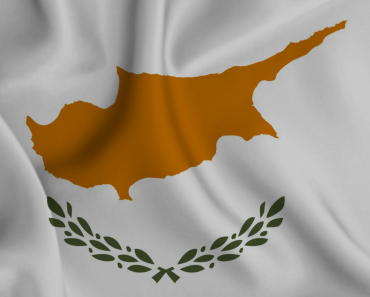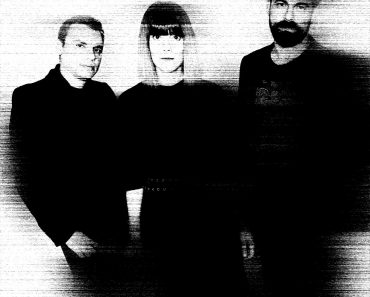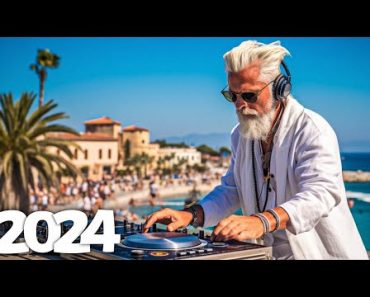Mikay is not just a singer. She’s a vocalist. With a vocal range spanning three and a half octaves, her voice is an instrument she wields with precision, adapting it to fit whatever result she aims for. She can perform nearly every genre of music—from pop to opera—in English, Italian, Spanish, Chinese, Korean, and Japanese. And yet, it’s still hard to pin her down, because she also writes songs and composes music. The songs she creates with her producer, Fotis Katsanos, are released on all major music platforms. But where we often see her most is on social media, where she shares covers of well-known songs that she records in the studio. In fact, that’s how it all started—posting videos of her singing in a garage. But how does a Greek pop star end up singing in Chinese?
GALA: How did you manage to learn such a difficult language?
MIKAY: I lived in China for three years. By the end, I was speaking Chinese very well. The first year, I didn’t understand anything, but slowly my ear got used to it. At the same time, I was learning Chinese songs for my live performances, so I got the hang of the language’s mechanics, and after that, it became much easier.
GALA: How did you end up in China?
MIKAY: I had started uploading songs on YouTube, and at some point, I got an offer for live performances in China. There, they tend to invite artists from the West because they love our music. The idea felt a bit intimidating because of the cultural differences, but ultimately, it was the experience that defined me. I went with Fotis, who is also the director of my live performances, and later my sister Monica, who’s a DJ, joined us. But after our first month there, the pandemic hit, and we were locked in the hotel. We basically had a vacation in an “Intercontinental” with a pool, but we were surrounded by strangers, not knowing what was happening in the world. When we looked out the windows, we saw no one—only sometimes the military, and we thought it might be some kind of apocalypse. Eventually, we became friends with the hotel manager, and after three months when the quarantine ended, we started touring from city to city for performances.
GALA: What was the nightlife experience like in China?
MIKAY: It was very different from what we’re used to here. In a club, you can see everything—some people partying, others playing board games, and some eating noodles. Their favorite song is “My Heart Will Go On” from Titanic, but they go wild for Lady Gaga’s “Poker Face”. Of course, I always included these in my setlist. Since a lot of Japanese and Korean people come to China for work, I slowly started singing in those languages as well. I spent three years traveling from city to city, but even then, I didn’t see everything I wanted to. I didn’t return to Greece in between, but in the last six months, I really missed my family, and I started having panic attacks, so I decided to come back for good.
GALA: So, how is your work now?
MIKAY: After we returned to Greece, we released my first two singles, and last March, I decided to join TikTok. I started recording and uploading covers, and now I have almost 85,000 followers. Through social media, I was discovered by Minos EMI/Universal, and in August, I signed my first record deal. My album includes my song “Blah, Blah, Blah” in Japanese, Korean, and Chinese, among other versions. My label is also in talks with Universal Korea, which has uploaded my Korean song to their platform. Meanwhile, we’re doing live shows in Athens.

GALA: Does your large TikTok audience include Asians?
MIKAY: No, only Greeks. The Chinese, Korean, and Japanese songs I perform are very popular in Greece. In China, they don’t have TikTok, even though it’s a Chinese platform. They have their own version called Douyin. They don’t have any social media like we do, not even access to our platforms. No YouTube, no Google—they have their own systems.
GALA: When did you start singing?
MIKAY: I’ve always wanted to be a singer; I was determined from a young age. In my early years, we lived with my family in Italy, but later we moved to Rhodes, where my father is from. When I was 10, I asked to learn a musical instrument, and my parents thought it would be a good idea to enroll me in the island’s Philharmonic. I dreamed of learning piano, guitar, or at least the flute, but the band only offered trumpet, trombone, or clarinet. So, I chose clarinet and became the youngest professional musician in the group. Later, I attended the Music School and learned all the other instruments I had wanted to. During my entrance exams, I played the Titanic theme—first on the clarinet, then I sang it.
GALA: How did you adopt the Korean preppy style with your pink hair?
MIKAY: That’s always been my style, not just for live performances. I dress this way because these are the images and the culture that resonate with me. I choose my own clothes. Most of the time, I shop at popular stores, but I do a lot of alterations to make them match what I have in mind. I’m very involved in fashion and even finished a fashion design course in Athens. As for my hair, it was black when I first went to China. I wanted to dye it blue, but there was an accident at the salon because they didn’t know how to handle different hair textures than their own. After that mishap, they told me I could only dye it with a warm color, so I chose pink, and it’s been that way ever since. Recently, I’ve left the roots black because Lorvenn and I are planning a new change.

GALA: From the glow of your skin, it looks like you follow the glass skin trend from K-beauty. What’s your secret?
MIKAY: I’ve deep-dived into K-beauty, and I also have collaborations with brands as a content creator. Glass skin is achieved using products that contain specific ingredients like rice, centella asiatica, fermented components, mushrooms, and ginseng. The key difference between Korean and Western beauty philosophies is that the Korean approach emphasizes gradual hydration and soothing the skin, avoiding harsh ingredients like retinol and acids, which are more popular in the West.

GALA: What’s your beauty routine?
MIKAY: I follow a ten-step routine, different for morning and night, using products from various brands. The great thing about Korean cosmetics is that they often contain minimal, sometimes just one active ingredient, so you can layer them without worrying about skin reactions. I choose my products carefully and read a lot to learn about the properties of each ingredient. I do the same with my diet. There are certain foods that are beneficial, and when you include them in your routine, you can see the difference from the inside out.
GALA: Which foods?
MIKAY: For example, turmeric. I add it to my food or make it into tea with a pinch of black pepper for better absorption and detoxification. In China, I got deeper into herbal teas. When I have time, I mix different herbs like lavender, rose, green tea, and others, creating blends with different properties. I never go to sleep without my evening chamomile. Your body is your home. When you love and take care of it, it shows—from the energy you have to the glow of your skin.
Ask me anything
Explore related questions




